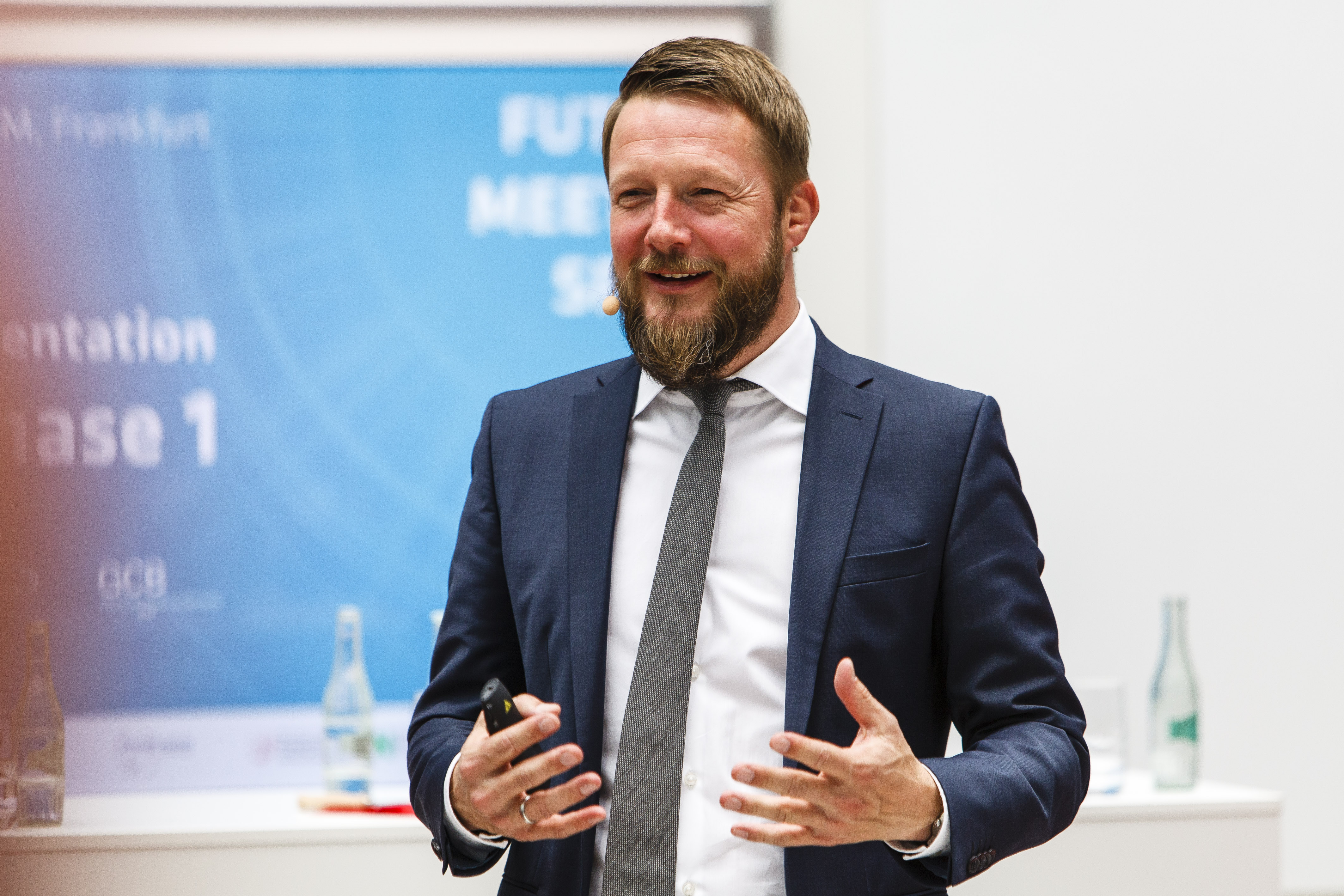 |
Matthias Schultze, CEO of German Convention Bureau (GCB)
What is your study "Future Meeting Space" about?
The meetings industry is changing rapidly and we therefore initiated our "Future Meeting Space" project not only to highlight developments and opportunities but also to provide detailed recommendations for action. We look into trends and innovations as well as developments in society and assess their possible influence on the meetings industry. To that end, the GCB German Convention Bureau e.V. joined forces with the European Association of Event Centres (EVVC), the Fraunhofer Institute for Industrial Engineering IAO and other research partners. In its first research phase, our innovation network developed, amongst others, six meeting scenarios, including interactive forums, multisite, co-working and hybrid conferences as well as "virtual goes live" formats. Kick-off for our second project phase was in March 2017, with a focus on identifying existing types of delegates, establishing the effects that methodical and technological event elements have on delegates and how they influence user acceptance, knowledge transfer, learning progress and the quality of the experience.
What did you find out?
Following the analysis of current developments and their effect on the event industry, we compiled a catalogue of innovations. On this basis and supported by expert and focus group interviews, the research partners then developed six innovative event scenarios that fed into devising one integrated, overall scenario ("Future Meeting Room") that covers different categories (description, organisation, format, space, technology, infrastructure and experience). Apart from hybrid structures, this future meeting room can manifest itself in multisite and co-working events and it aims at encouraging interaction and knowledge transfer, bringing participants together that come from various backgrounds and promoting active involvement of each individual delegate. We provide a synopsis of our research results, including the catalogue of innovations, a management summary and infographics on the scenarios ("Future Meeting Room"), all of which can be downloaded for free on www.future-meeting-space.de.
How can especially decisionmakers and planners in associations benefit from these results?
Our research findings highlight the complex technological and organisational requirements as well as demands on space that event organisers face and provides detailed recommendations for successful implementation. Event planners and venue operators are, for example, provided with valuable input regarding long-term investments that drive the digitalisation of infrastructure and processes. The innovative ideas and future-proof strategies developed by the research partners contribute to strengthen Germany’s leading position as a premier conference and meetings destination.
Can they participate in the project, too?
Yes, decision makers and event planners can participate in the "Future Meeting Space" project and such partners not only gain exclusive insights into research results and benefit from the public awareness but also have a say in the main research topics. As part of the project, regular research meetings are being organised in order to discuss the latest research results and examples of best practice.
What do you suggest for international associations regarding meeting design?
"Standard events" have had their day: Personalisation, individualisation and face-to-face interaction will be key for successful events. Rapidly advancing mechanisation means that events will in future be more flexible, interactive, connected and hybrid. They will make use of new digital tools to enable knowledge transfer and the involvement of participants as well as be more topical and offer more opportunity for organising creative meetings. The challenge will be to give new formats a chance. You can work with innovative formats, such as boot camps, TED talks and World Café, or use new technologies, such as holograms, tangible media and bluescape. Alternatively, virtual spaces for participants to interact in, can be put alongside real events. Enabling networking will be a crucial success factor and organisers and location operators should, for example, provide the participants with digital matchmaking tools prior to the event so that they can communicate which topics they’re particularly interested in. Similarly, the potential of social media networks to foster communication and the exchange of experiences and information could be better exploited.